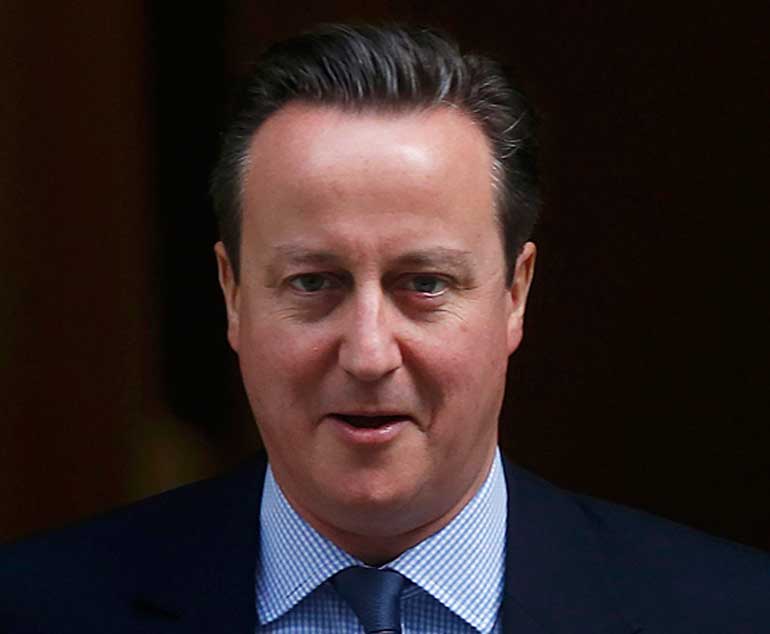Friday Feb 20, 2026
Friday Feb 20, 2026
Friday, 5 February 2016 00:00 - - {{hitsCtrl.values.hits}}
 British Prime Minister David Cameron
British Prime Minister David Cameron
Reuters: British Prime Minister David Cameron faced the wrath of his own side in parliament on Wednesday (February 3), where he stood up to defend a deal to keep Britain in the European Union that was savaged by many of his fellow Conservatives and the eurosceptic press.
Cameron has all but fired the starting gun for a membership referendum by throwing his weight behind a reform plan presented by European Council President Donald Tusk on Tuesday (February 2), and the battle lines are being clearly drawn.
“We don’t want our country to be bound up in an ever closer political union in Europe. We are a proud and independent nation. With proud independent democratic institutions that have served us well over the centuries,” Cameron said In a statement to lawmakers in the British Parliament.
The prime minister said he had secured a “legally binding” deal on Europe.
“These changes will be binding in international law and deposited at the UN. They cannot be changed without the unanimous agreement of every EU country, and that includes Britain. So when I said I wanted changes that were legally binding and irreversible, that is what I have got,” he added.
The deal has so far received a warm response from European capitals which must approve it. But at home, it risks reopening a longstanding rift in Cameron’s Conservative Party, which has been plagued by division over Europe for generations.
John Redwood, a conservative backbencher, criticised the implementation of proposed ‘emergency brakes’.
“As we are driven in the EU vehicle to ever closer union and to political union, how does it help to fit a couple of emergency brakes that lie within the control of the EU and not us? Isn’t the only way to get control of our borders, our tax revenues and our welfare system, is to leave and be a good European and let them get on with their political union,” he said.
Another Conservative said the proposed deal did not give the UK the changes demanded.
“Our national parliament, he said at Bloomberg, is the root of our democracy, not a majority of red cards in other parliaments, which we would have full on treaty change and not the announcements that we have had today. We were promised a fundamental change in our relationship with the EU. We were promised we would deal with the excessive immigrant numbers, which has now been whittled down to a issue about in work benefits controlled by the European courts of justice,” said Sir William Cash.
Even some of Cameron’s allies have questioned the package of measures offered by Brussels.
London’s Mayor Boris Johnson, a possible successor to Cameron who has been coy so far about his own position, was sceptical about the impact of the proposals.
“How these changes as a result of these negotiations will restrict the volume of legislation coming from Brussels? Will it change the treaty to assert the sovereignty of this House of Commons and of these Houses of Parliament?”
Former defence secretary Liam Fox, a leading eurosceptic Conservative lawmaker, told BBC radio that up to five ministers in the prime minister’s cabinet were certain to back leaving the EU.
In a question to Cameron in Parliament he attacked Europe’s control of policy on immigration and migrant benefits.
“Is it not clear that we are not sovereign in these areas. We do not have independent control of these areas of policy and is it ultimately the decision of the referendum on areas of our own laws and our own borders whether we want them to be determined here by ourselves or overseas by someone else.”
Cameron has said ministers are free to campaign on either side of the referendum after a deal is reached, but is hoping that leading figures including members of his cabinet will follow his lead.